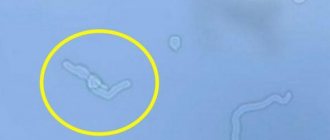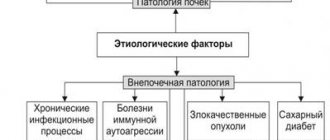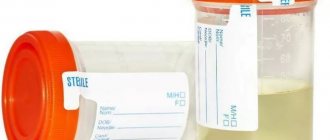Lower back pain occurs quite often. Patients say “my lower back hurts”, “my lower back is pinched”, “shot in the lower back”. If the pain is not acute, they may say “lower back hurts,” “lower back pulls,” “lower back ache.” Sometimes the pain is described as a burning sensation in the lower back.
Lower back
called the lower back - from the place where the ribs end to the tailbone. Perhaps a separate word for the lower back was needed just to indicate the place where it hurts. After all, if your back hurts, then in most cases it is your lower back that hurts.
What can low back pain look like?
Most often, lower back pain occurs suddenly, sharply and is acute. In this case they talk about lumbago
(outdated popular name -
lumbago
). The pain is described as sharp, “shooting.” Movements are constrained, sometimes it is even impossible to straighten your back. With any movement the pain intensifies.
An attack of pain can last a couple of minutes, or it can last for a longer period of time (up to several days). It may be that the attack will pass and the pain will no longer remind itself, but often the pain returns and the person gets used to the fact that his lower back can hurt.
Lower back pain can not only be acute (sharp), it can be nagging and chronic. Mild but constant pain in the lower back, sometimes worsening, for example, during physical activity, an infectious disease, hypothermia, etc., is called lumbodynia
. Sometimes there is no direct pain, but stiffness remains in the lower back, and the patient experiences discomfort.
Chills in the back - a problem or normal
The lumbar area is the most vulnerable area, where a feeling of cold most often occurs when a person catches a cold. Chills throughout the body often begin in the back. She also gets cold if her back gets cold. Almost everyone has encountered these sensations, many more than once. Why does this happen, and how to respond to this signal from the body, which means something.
Is your back cold? Perhaps she was shown through
All people who have ever had a cold back can be classified into four groups.
Table. Groups and reasons why the back freezes
| Group | Image | Characteristic |
| People whose bodies do not produce as much energy as needed to maintain normal body temperature | This category of people includes fragile women who are constantly addicted to diets or people who do not eat enough calories. Also in the group there may be convinced vegans who consume low-energy foods, teenagers whose body metabolism is not fully regulated, elderly people in whose body all processes are slowed down | |
| The body of people belonging to this group is capable of producing energy in sufficient quantities, but cannot store it | This mainly includes people with emotional problems. They waste energy that should maintain their temperature on emotions | |
| The third group includes those who normally produce and store energy, but have problems with its distribution in the body | Here, the problem of a cold back overtakes those who lead an insufficiently active life, those who are inactive, as well as the elderly. | |
| The fourth group is people with various types of diseases | The cause of cold can be osteochondrosis or an anomaly present from birth, hernia or vascular pathology, spondylosis and many other diseases associated either with the spine or not |
Causes of lower back pain
Lower back pain can be caused by various reasons, but the statistics are as follows:
- in 90% of cases the pain is caused by problems with the spine and back muscles;
- in 6% the cause of pain is kidney disease;
- 4% - diseases of other internal organs (genitourinary system, intestines).
The spine accounts for the majority of all cases of low back pain, and this is no coincidence. In humans, the center of gravity of the body is located exactly at the level of the lower back, and when walking, the entire load falls almost entirely on the lumbar spine (animals that move on four legs do not have this problem). And when a person sits down, the vertebrae of the lower back and sacrum experience the same force of pressure with which a 170-meter layer of water presses on a diver. Naturally, this area is particularly vulnerable.
Tibetan Medicine Clinic "Arura"
interview: Valentina Ivushkina, specialist in Tibetan medicine / Yoga Journal #89 (December 2021)
The kidneys are afraid of the cold - a popular expression is true from the point of view of Tibetan medicine. Alexey Igorevich Pilnov, Doctor of Traditional Tibetan Medicine, Head of the Arura Clinic, spoke about how to protect this important winter season .
Alexey Igorevich, why does cold make the kidneys vulnerable?
Vulnerable in this case is not quite the right word; everything is somewhat more complicated. On the one hand, of course, it is important not to overcool; on the other hand, the kidneys must survive the real winter in order to accumulate the Water they need (here we mean the primary element), which is formed only in winter. Excessive cold is harmful to the kidneys, but if there is no cold at all, the kidneys are also bad. Therefore, people who permanently live in Russia and go to Asian countries for the winter do not live the winter normally. And problems with adaptation begin. The kidneys do not accumulate enough Water and become lighter, which gives rise to Wind and all the instability of health in the form of low fertility in women, impotence in men, lower back pain, arthrosis of the hip joints, varicose veins in the legs, as well as protrusions and other troubles with spine.
Although even in Russia we don’t experience winter in natural conditions: we sit in offices and cars, we don’t walk on the ground, we don’t have any contact with snow - and we’re even afraid of it. But we need cold. Yes, we need warmth, but at the same time we need cold. But we have neither normal heat nor normal cold. The primary elements contact us as if through a screen. And what’s more, we don’t get normal primary elements through food, because even in it we have some kind of inventions all the time.
How can people who have left Russia for the winter compensate for the lack of Water?
It is difficult to replenish it artificially; you cannot fool nature. But since these processes are controlled by the Wind, at least care must be taken to ensure that it is not blocked, and therefore to maintain a system of circulation channels. Yoga is very suitable here. This also includes running and physical activity - everything that warms up and keeps the channels in working condition. But everyone already knows this!
Or maybe they should just drink more water?
No need to drink forcefully. If we take the average person, then 3 glasses of liquid (morning, lunch and evening) plus soup. It turns out 1 liter - this is quite enough.
Everyone keeps saying that you need to drink at least 2 liters!
This recommendation is related exclusively to the sale of water and has nothing to do with the real state of affairs. Thirst is a condition that a person cannot tolerate. I have not seen a single person who is thirsty in his normal state. Therefore, specifically, “for the sake of kidney health,” you should not pour yourself liquid.
Drinking without desire means overloading the systemic circulation, kidneys and heart. This will most likely lead to swelling. The sense of taste must be trusted: it is given to a person to regulate the volume of water or food.
How important is water quality for kidney health? Are stones, for example, formed due to bad water?
Water quality is important, it’s difficult to argue here. But it will only have an effect when a violation already exists. The root cause of all health problems and the root disease is indigestion, low digestive capacity, which can be of the Wind, Bile or Mucus type.
Kidney stones are formed primarily due to Wind disorder, in other words, exhaustion. Wind in the stomach - Wind in the blood - Wind in the kidneys - Wind in the urine. The mechanism is this: when there is excess air in the blood (Wind), its viscosity decreases. In such blood, everything that is contained there precipitates. These are the elements for the crystallization of the stones themselves. It turns out that stones are formed as a result of the failure of the physico-chemical properties of blood (and, as a consequence, primary urine), which contains a lot of Wind. So for stones we usually treat Kidney Wind. But we cannot say that this is always the case: Wind or blood depletion are the result of any process, but the initiator can be two other harmful factors (Bile and Mucus), as well as their combinations in pairs and threes. High blood pressure, for example, can also cause the formation of stones, but the Heat of the liver is often mixed in there, and, accordingly, the treatment will be different: the drying mechanism of widespread heat will have to be taken into account. The outcome of any process during stone formation and its dominant will be the Wind of the Kidneys and the Wind of Blood preceding it.
We talk a lot about water in connection with the kidneys. Their main function is related to liquid filtration?
Yes. Everything that dissolves in water passes through the kidneys. The kidneys constantly pass blood through themselves and control its condition. However, they also perform other important functions. For example, the kidneys provide a rapid mechanism for maintaining a constant internal environment. Each of us has a certain set of chemical elements, which the kidneys control, discarding everything unnecessary.
What is the role of the kidneys at the energy level?
At the energy level, the kidneys store hereditary information and are responsible for life expectancy. They concentrate the energy of Qi, which is transmitted from the parents and is located in the pelvis. A person uses this energy as a reserve when a malfunction occurs and the body lacks energy from the outside - through breathing (lungs / prana) and food (stomach and spleen / nutrients). Stress, poor quality food, excessive stress, past illness - the consequences of all this are compensated by the kidneys. Therefore, in Tibetan medicine they are compared to heroes.
At what age are the kidneys weakest?
The innate Qi energy, which is located in the kidneys, is discharged quite quickly in old age, as it is poorly supported by the energies passing through the lungs and digestion. Especially if a person has made many mistakes regarding his health and lifestyle. Old age is a condition that occurs as a result of chronic diseases that inhibit kidney function and reduce Qi energy.
Is it true that women are more prone to kidney disease because women by nature belong to the element of Water?
A woman is indeed more open to the influx of cold - a short urethra, more holes in the lower part of the body... However, women do not suffer from cold diseases more often than men. In my experience, men suffer even more from kidney disease! But this is more often associated not with cold, but with disordered nutrition: the stomach becomes weak, atrophic, produces little quality blood, this generates a lot of Wind - and this often leads to dryness or excess moisture in the kidneys and other organs. Of course, cold can develop not only as a result of poor diet, but also due to weather or climatic conditions. You need to dress warmly. Keep your feet warm. Do not sit on cold ground or swim in cold water.
If hypothermia does occur, what should you do?
You can drink 50 g of cognac or something warming. Steam your feet, take a hot sitz bath. Do something that will unblock the channels of Wind (energy) circulation. You can also do a warm milk enema or an oil massage on your lower back.
Besides keeping your feet warm, what else do you recommend to prevent kidney disease?
Start with nutrition. People neglect their breakfast, barely eat lunch (or skip lunch without an entree), and overly rely on their dinner. And this all leads to the combined diseases that we talked about today. The kidneys will always do well when they have the support of the lungs, and the lungs work correctly when the stomach works correctly. Breakfast should stimulate digestion and all the energy in the body. Lunch – to compensate for energy costs. Dinner slows down and calms metabolism and leads to sleep.
What do you eat for breakfast?
Porridge cooked in water, with ghee, spices and salt. All whole grains: buckwheat, rice, millet, egg, pearl barley. All grains are essentially balanced and remove Mucus (in the morning Mucus accumulates in the stomach as much as possible). I also drink tea with honey, sea buckthorn or rosehip. The most unhealthy food for me for breakfast would be a cheese sandwich, or any sandwich for that matter.
Again about food. Is it true that watermelon cleanses the kidneys?
Watermelon enhances fluid clearance because it contains a large amount of sugar, which is easily digested. The kidneys receive large amounts of glucose to work with. The car is powerful, but also huge!
As a rule, this helps in cases of congestion, heat diseases, and depletion of filtration mechanisms. Watermelon also has the ability to move energy downwards due to its heavy nature. As a result, fluid filtration is enhanced and the parenchyma (dense structure of the kidneys) is strengthened. This mechanism, unlike diuretics, prevents kidney depletion.
Can you give a practical recommendation for absolutely everyone?
There is one simple but very important point: I recommend that all patients use molasses. This substance is obtained from very traditional and simple things and eliminates Wind in the kidneys, the cause of many diseases. Molasses is a product of processing sugar beets, dates, and sugar cane. This is the so-called dark sugar, the heaviest fraction of sugars with a high atomic weight and the hottest in terms of heat production. Molasses, by the way, is included in many confectionery products, but it is better to use it in its pure form.
From its use, the kidneys become more powerful, the pelvic organs receive good blood supply, muscles and ligaments are strengthened, and connective tissue is actively formed. Add molasses to tea or milk instead of sugar, little by little. If your kidneys suddenly become hypothermic, eat a small piece of molasses. You will be surprised how quickly it will work: lower back pain will go away, the spine will become flexible and strong, the feet will be elastic, and the body will be resilient.
Diseases of the musculoskeletal system that cause lower back pain:
- pinched sciatic nerve. The nerve roots extending from the spinal cord are compressed by neighboring vertebrae. In this case, a sharp, shooting pain occurs. As a rule, pinched roots become possible due to degenerative changes in the spine (osteochondrosis): the intervertebral discs separating the vertebrae from each other are destroyed, the gap between the vertebrae narrows and sudden movement (tilting, turning) can lead to pinching of the nerve branch;
- sciatica (lumbosacral radiculitis). Pinched nerve roots can become inflamed. Inflammation of the nerve roots is called radiculitis (from the Latin radicula - “root”); To indicate inflammation of the sciatic nerve, a special name is sometimes used - sciatica. If the sciatic nerve is damaged, lumbar ischialgia may be observed - pain in the lower back, also spreading to the buttock and leg along the sciatic nerve;
- intervertebral disc herniation – protrusion of a fragment of the intervertebral disc into the spinal canal. Occurs as a result of injury or degenerative changes in the spine (osteochondrosis);
- myositis of the lumbar muscles. Myositis is an inflammation of skeletal muscles. The cause of myositis of the lumbar muscles can be hypothermia or sudden tension.
Also, lower back pain can be caused by diseases such as multiple sclerosis, degenerative sacroiliitis, osteoporosis.
Prevention of low back pain
The occurrence of lower back pain is often provoked by a careless attitude towards one’s own health. Pain may be caused by:
- staying in the same position for a long time (for example, during sedentary work);
- incorrect posture;
- low mobility;
- excessive physical activity.
All these factors contribute to the development of diseases manifested by lower back pain. The risk of pain can be reduced by following the following advice from doctors:
- watch your posture;
- Avoid uncomfortable postures when working while sitting. It is advisable that the knees are slightly higher than the hip joints. To do this, use a low chair or footrest. Place a small pillow between your lower back and the back of the seat;
- When working sedentarily, you need to get up from time to time to move around. Take five-minute breaks every hour; how to lift weights correctly
- It is advisable to sleep on an orthopedic mattress (elastic and quite hard);
- You need to lift weights by bending your knee joints, not your back. That is, you need to squat down, bending your knees, and then straighten them, while maintaining a straight line of your back;
- When carrying a load, it must be evenly distributed between both hands; you cannot carry the entire load in one hand (one heavy bag);
- Every day you should do a set of exercises aimed at strengthening the abdominal and back muscles.
Signs of kidney disease
Frequent urination
If you have never had trouble urinating before and suddenly feel the need to go to the toilet more often, especially at night, consider visiting a doctor. This may be one of the symptoms of progressive kidney disease, which should never be neglected, otherwise the consequences may be irreversible.
This occurs due to the fact that the filters in the kidneys are disrupted, and they can no longer cope with liquids and toxic substances that enter the body. Sometimes this symptom may indicate a urinary tract infection or an enlarged prostate in men, which is no less dangerous to health.
Blood in urine
The kidneys are an important part of the urinary system, and if they stop functioning normally, disruptions occur throughout the body. Healthy kidneys only filter the blood, removing only harmful and toxic substances. The red blood cells remain in the body.
If the kidneys are sick and filtration is impaired, red blood cells begin to leak into the urine and are removed from the body. A person cannot miss this symptom - the blood will be clearly visible, and the color of the urine will become darker. Blood can also be one of the signs of a tumor, kidney stones or infection, so you should not self-medicate.
Puffiness under the eyes
Everything in the body is always interconnected, so if one system suffers from a disease, this will undoubtedly affect the health of the whole body. When the kidneys are affected by disease, filtration is significantly impaired, and protein, which should normally be retained in the body, begins to be excreted along with urine.
One of the main symptoms of impaired filtration is swelling under the eyes. If you have not encountered this problem before, you should not ignore it, because it may indicate a sharp and significant loss of protein necessary to maintain health.
Lower back pain due to kidney disease
For lower back pain, it is important to determine what is causing it - pathologies of the musculoskeletal system or kidney disease (as well as other internal organs). Diagnosis must be carried out by a doctor. However, there are signs to suggest that the pain may be due to problems with the kidneys and/or other organs of the genitourinary system. If these symptoms occur, it is advisable to immediately contact a urologist. Kidney disease (or more broadly, the genitourinary system) can be suspected if lower back pain is accompanied by:
- general deterioration in health (lethargy, drowsiness, weakness, increased fatigue);
- swelling of the eyelids and face. Swelling is especially pronounced in the morning, after waking up, and subsides in the evening;
- increased body temperature, chills, sweating;
- loss of appetite, nausea, vomiting;
- frequent or painful urination;
- changes in the characteristics of urine (it may become more concentrated in color or, conversely, colorless, contain mucus or blood);
- increased blood pressure.
Also an important sign that lower back pain is caused by problems of the internal organs, and not the musculoskeletal system, is its independence from the position of the body: the pain does not increase or decrease from changes in the position of the body and limbs. However, with prolonged standing in a standing position due to check pathology, the pain may intensify. The location of the pain also matters. With kidney disease, pain is most often observed on one side (since usually only one kidney is affected). Kidney pain may not be limited to the lower back, but may spread along the ureter, to the groin, to the external genitalia, to the inner thighs.
Symptoms of diseased kidneys
When a malfunction of the kidneys occurs, it is immediately reflected in the urine. It may happen that at night you need to go to the toilet, and the urine will be foamy or with bubbles. You may notice that the frequency of your urge to urinate or the amount of urine you produce has increased. The urine became too pale (or vice versa, dark), and blood appeared in it. You begin to feel pain when urinating and feel pressure in the pelvic area. Incontinence...there are many options.
When the kidneys fail, they cannot ensure that all the excess fluid is removed from the body. As a result, swelling of the legs, arms, ankles, and face appears.
Fatigue
Healthy kidneys produce a hormone called erythropoietin. With its help, red blood cells appear in the body, delivering oxygen to the blood and, accordingly, to all organs. If the kidneys do not work correctly, the amount of hormone they produce decreases. Thus, the muscles and brain get tired faster than usual.
Skin rash and itching
Blood waste is eliminated from the body through the kidneys. When the kidneys don't do their job properly, waste accumulates in the blood. This can cause severe itching, which will soon become noticeable on the skin (in the form of a rash).
When toxins and waste accumulate in the blood (uremia), the taste of the food consumed tends to change. Bad breath (halitosis) appears. Some patients note that the taste of meat has become unpleasant to them. Others complain of weight loss because they don't feel hungry. The taste in the mouth becomes unbearable (at any time of the day). It is impossible to get rid of it, even by brushing your teeth, rinsing your mouth or chewing gum.
Fatigue
A sharp deterioration in kidney function leads to the accumulation of harmful toxins and impurities in the blood. In addition, healthy kidneys not only filter the blood, ridding it of toxic substances, but also produce the hormone erythropeoetin, which is responsible for the formation of red blood cells - red blood cells. And they, in turn, saturate the body with oxygen.
Disturbances in the production of the hormone and the accumulation of harmful compounds cause people with diseased kidneys to feel constant fatigue, which even sleep does not eliminate. Another complication that can result from kidney problems is anemia. These symptoms are treatable, and prompt medical attention will increase your chances of recovery.
Sleep problems
As already mentioned, when the kidneys stop functioning properly, the concentration of toxins dangerous to humans increases in the blood, which are excreted from a healthy body in the urine. This creates sleep problems, which can be one of the symptoms of a serious illness.
If you notice insomnia or frequent awakenings in the middle of the night combined with some other signs from the list, do not delay visiting a doctor. Also, people with diseased kidneys are more likely than others to experience apnea - temporary cessation of breathing - during sleep.
Itching and dry skin
Healthy kidneys normally perform many different functions that support the human body. They remove toxic and hazardous substances from it, participate in the formation of red blood cells, and control the amount of minerals in the blood. If you notice itching, irritation or dry skin, this may be a symptom of an unusual allergy.
Because diseased kidneys no longer properly control the amount of beneficial and harmful substances in the body, toxins can accumulate in the blood, and minerals and nutrients cannot be absorbed. This leads to gradual poisoning of the body, which often results in unbearable itching without any visible symptoms, and the person begins to itch and scratch the skin.
Lower back pain: what to do?
Low back pain is a symptom of a disease that requires treatment. Therefore, it is necessary to consult a doctor. But in the event of a sudden attack of acute pain (“lumbago”, typical of radiculitis), first of all, it is necessary to relieve the pain syndrome. Doctors advise:
- use gentle heat. Tie a woolen scarf or woolen belt around your lower back;
- take painkillers;
- It is necessary to take a position that allows you to relax your back muscles. It is recommended to lie on your back, on a hard, flat surface (board); The legs should be raised and bent at the knees, for which a rolled blanket or pillow should be placed under them. (It is not advisable to lie on the floor; there may be a draft).
The proposed pose is not a dogma. The patient should feel relief, so other positions are possible; for example, lying on a board, place your legs bent at the knees on it, holding a pillow between them. You can try lying on your stomach and stretching your legs, placing a bolster under your ankle joints. If the severity of the pain has been relieved, this does not mean that a doctor is no longer needed. Without proper treatment, attacks will recur, and the situation as a whole will worsen.
Which doctor should I contact with a complaint of lower back pain?
If you have lower back pain, it is best to consult a general practitioner, since first of all you need to determine which organ disease is causing the pain. Depending on the results of the examination, consultation with a particular medical specialist may be required. Can be assigned:
- consultation with a neurologist to assess the condition of the spine, back muscles and nervous system;
- consultation with a urologist – in case of suspected urinary system disease;
- consultation with a gynecologist – if chronic diseases of the female reproductive system are suspected or present;
- general blood test and general urinalysis - to confirm or exclude the inflammatory nature of the disease;
- radiography of the spine;
- Ultrasound of the hip joints;
- as well as other studies.
Classification of causes
This problem - the occurrence of cold sensations - can be either a pathological or physiological problem. At least, that’s how doctors describe the symptoms.
Physiology
These conditions are distinguished by the presence of a clear time frame - the cold is not felt constantly, but occurs only short-term and periodically. The occurrence of this feeling is influenced by the following factors:
- externally influencing environment;
- temporarily altered state;
- stressful state;
- state of hunger;
- lack of sleep;
- uncomfortable, difficult posture;
- being motionless.
Stress can cause a cold back
As soon as the physiological impact factor disappears, the feeling of cold also disappears. This feature is not related to the pathological feeling of freezing of the back.
- External influence from the environment is elementary hypothermia, frequent exposure to dampness, draft or wind.
- Changes in the body can be either a manifestation of a cold, accompanied by chills, increased sweating, or vasoconstriction.
- Stress is a cold-provoking factor because the nerve endings located around the spine react to it and hormones are released from the body of the adrenal cortex.
- If a person remains immobile for a long time or in an uncomfortable position, the back becomes numb and feels cold.
- This reaction of the body can also be detected during physical fatigue and heavy load on the back.
A cold back may be due to a cold.
After changing posture, resting, disappearing the feeling of hunger, eliminating external natural influences, the back quickly warms up and returns to normal temperature.
Signs of pathology
The causes of the pathological nature are more serious and deeper, since in absolutely all episodes they report the occurrence of problems in the body or a pathology already existing in it.
They have the following distinctive features.
- They are stable in nature, stable, repeated, do not disappear after the disappearance of irritating factors, when changing the spatial position, regime, way of existence.
- They can force a person, in order to reduce bad sensations, to take an atypical position, which takes on a characteristic and affects the change in the condition of the organs.
- Often, in addition to cold skin, tingling is felt, itching, and numbness in various areas are detected.
- In certain cases, the phenomenon is accompanied by pain of varying strength, which spreads not only to the back, but also to the sacrum.
Coldness in the back may be a signal of pathology
If everything is simple and clear with physiological factors, their occurrence and impact, then the response to pathologies with a feeling of cold, which occurs on an ongoing basis, can be explained by a number of reasons.
Most often, the body reacts with a similar effect to neurological dysfunctions, diseases and damage to the musculoskeletal system, pathologies of the cardiac region, vascular problems, and numerous infections.
Table. Causes of back freezing due to pathologies
| Reason name | Image | Description | Symptoms and treatment |
| Hernia | It is considered one of the main pathological causes. Nerve endings are squeezed between the vertebral cartilages, which reduces sensitivity | Freezing can occur between the shoulder blades, in the lumbar area, and at the bottom of the neck. The patient perceives this as freezing of the back. In addition, pain is felt in the spinal area, radiating to the shoulder girdle or buttocks, depending on the location of the hernia. For short-term relief of symptoms, you can take baths or a contrast shower, wear a warming belt, but all this is in consultation with your doctor. | |
| Osteochondrosis | With osteochondrosis preceding the hernia, the paravertebral nerves are irritated due to changes in the height of the vertebral cartilaginous segments | Cold sensations are less pronounced and do not occur constantly, but occasionally. At the same time, the area damaged by osteochondrosis becomes numb or numb. Mild pain and tingling in the back may occur. First aid is a contrast shower or a warming bath. Next, you will need to consult a doctor who can prescribe a massage. | |
| Spondylosis | This pathology, which also precedes a hernial formation, has a more dangerous form than with osteochondrosis, since pinched nerves are almost at the level of the hernial | Coldness in the back is accompanied by pain and has an increasing character of increasing intensity. If the process is in the cervical area, then the hands and back of the head become numb. If in the chest, unpleasant sensations are present between the shoulder blades. The lower back may become numb and “shoot through”, with pain descending into the pelvis and legs. You should not carry out massage and physical exercise procedures on your own. You can warm your back with folk remedies, rubbing, warm wraps, but only once. Then you should visit a doctor and, as in previous cases, treat the cause | |
| Polyneuropathy | The essence of the pathology in this disease is that the process of passing impulses along the nerve fiber is disrupted. They do not reach the target point, it also gives the feeling of a freezing back | The chill runs down the back sporadically, but sometimes it can feel strong and unpleasant. Along with it, muscle atrophy of the area is observed, skin sensitivity may decrease, and reflexes weaken. With this lesion, massage (after diagnosing and excluding diseases of the vertebrae) and warming water procedures are possible. Drugs that increase blood flow | |
| Vascular pathology | As a result of this anomaly, a lack of nutrient flow to the back occurs on an ongoing basis. This also happens due to vasospasm | The pathological process may be congenital or acquired. It is accompanied, in addition to cold sensations on the skin of the back (chills), dizziness and swelling, a temporary increase in blood pressure or a jump in temperature, and weakness. In almost all cases, this is most likely not a problem of old people. It is necessary to treat blood vessels and improve the quality of life, making it healthier and more active | |
| Weakening of the muscle corset | The spine weakens, the tone of the muscle corset is not maintained, the layer of subcutaneous fat becomes thinner, and heat transfer decreases. Hence the constant cold in the back | This process is temporary in adolescence and becomes persistent and tends to intensify in old age. With it, muscle weakness, fatigue, lethargy are observed, chronic bronchitis and stooping are possible. A teenager will be helped by proper nutrition, strengthening exercises and time. Elderly people can take local warming procedures, wrap their backs in a scarf, sleep in thermal underwear, drink hot tea and walk more |
So, the causes of chills in the back can be very different and of varying degrees of severity. Depending on their classification, measures are taken to eliminate this rather unpleasant condition for the patient.
You can deal with a minor reason on your own. These include:
- draft;
- chills associated with fever;
- physiological characteristics;
- body position in space;
- fatigue.
If the sensations do not go away after eliminating the supposed factors contributing to their occurrence, then the cause is serious, and to eliminate it it is necessary to diagnose the pathology and begin treatment.
Stages of spinal osteochondrosis
All diagnoses that contribute to the occurrence of freezing back syndrome - osteochondrosis and dystonia, trauma and hernia, neurosis and polyneuropathy - can only be eliminated by a doctor with the help of the treatment prescribed by him.
After finding out the reason why your back is getting cold, the doctor will begin treatment. When it can be eliminated, the symptoms will be eliminated, and the back will no longer feel cold.








